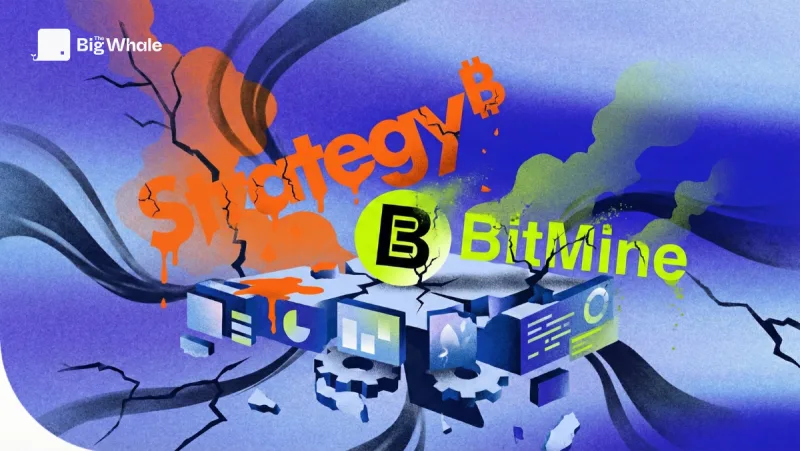TBW - Crypto regulation in 2025: a year of change

In 2025, the Wild West era of cryptocurrencies in Europe is set to come to an end, marked by unprecedented regulation and fiscal oversight. The regulatory landscape will be marked by the full entry into force of MiCA(Markets in Crypto Assets), the European framework designed to harmonise rules across the European Union.
However, the transition promises to be perilous for DSPs (Digital Asset Service Providers), who face several major challenges.
Obtaining MiCA accreditation: a path fraught with pitfalls
With MiCA, French PSANs have to take a new step: obtaining MiCA accreditation, which is much more demanding than simple PSAN registration (around a hundred holders). This process, which is compulsory if they are to continue operating, promises to be particularly arduous.
"Today, all the PSAN applications that could not be finalised by 2024 have been converted into MiCA approval applications. The result is a real bottleneck. We're talking about around thirty applications pending for the first half of 2025 at the AMF (Autorité des marchés financiers, editor's note)", explains William O'Rorke, partner at ORWL Avocats.
Only Société Générale-Forge, which obtained French authorisation in July 2023, should stay one step ahead: its application has had time to be examined so that it can be rapidly converted into European authorisation at the beginning of 2025.
Deblock and GOin, the other two holders of the French authorisation obtained in November and December 2024 respectively, could for their part see their transition to European authorisation slowed down as a result of recently obtaining their local sesame.
But customers can rest assured: for companies that already had PSAN registration on 30 December 2024, they will have 18 months to comply.
A market ripe for takeovers... and closures
Faced with these obstacles, many French PSANs are considering exit scenarios. "For players who don't have the level to move towards MiCA, there are two options open to them: close up shop or hope for a buyout," analyses William O'Rorke.
Buyouts, however, are not straightforward. "There is an urban legend that large foreign companies would be prepared to invest €20 million in a French PSAN. But in reality, these discussions rarely come to anything. Often, potential buyers only take advantage of the opportunity to gather information to strengthen their own services", he deplores.
Even when takeovers do materialise, the procedure is supervised. "If a change of shareholder leads to a substantial change in business, the AMF may require a full MiCA filing, which deters some buyers. Basically, a small PSAN cannot become Coinbase overnight," illustrates William O'Rorke.
For others, closure seems inevitable. But here again, it's not all that simple: "A PSAN that does cash custody can't close overnight. It has to hand over its customers to another compliant player, such as Coinhouse or Paymium, which is a form of indirect takeover."
In the long term, the lawyer predicts that only 25 companies will manage to reach the necessary level of compliance, not least because of financial resources (most sources mention a minimum ticket of €500,000 to become compliant).
By 2025, the structuring of the European crypto market could look more like a purge than a harmonious evolution. One thing is certain: competition looks set to be fierce, and only the most resilient players will come out on top in this transition.
Cybersecurity: a costly and unavoidable priority
Cybersecurity is one of the pillars of MICA, but it also represents a colossal challenge for PSANs. "Before, we used to work with one-off audits in France. With the European DORA (Digital Operational Resilience Act) directive, we are moving to continuous monitoring, which requires significant investment", explains William O'Rorke.
The slightest flaw can have serious consequences, both in terms of the security of funds and reputation. "Companies now have to incorporate robust protocols to avoid attacks, but also prove their compliance at all times. This adds considerably to the administrative burden", he points out.
At the same time, the AMF and the ACPR (Autorité de contrôle prudentiel et de résolution) are stepping up their controls. "Today, 30% of PSANs have already been checked on their LCB-FT (anti-money laundering and combating the financing of terrorism) obligations. These controls will be stepped up further under MiCA, with requirements that are closer to those imposed on banks," he stresses.
Tougher and increasingly intrusive taxation
Alongside regulatory developments, the taxation of cryptocurrencies will undergo a decisive turning point between 2025 and 2026, particularly with the implementation of the directive DAC8, issued by the OECD (an intergovernmental organisation bringing together the largest developed countries). This directive requires platforms to provide tax authorities with detailed information about their users and transactions.
"DAC8 will give tax authorities automatic access to KYC (Know Your Customer) data and the history of transactions carried out on platforms. Ultimately, this will create total transparency, comparable or even superior to that of traditional banks thanks to on-chain traceability," stresses William O'Rorke.
For users, this means the end of certain grey areas. For example, it will become increasingly difficult to conceal transactions made on non-custodial wallets. "Platforms will have to collect proof of ownership for external wallets. In practice, this means that if you transfer cryptos to your Ledger, you may be asked to demonstrate that the wallet belongs to you, particularly for amounts in excess of €1,000," he explains.
With these new rules, the tax authorities will have a complete picture of financial flows linked to cryptocurrencies. While this is aimed at combating tax evasion, it also marks a move towards increased oversight of the entire sector, which could deter some users from using regulated platforms in Europe. "These measures are a turning point for the European market. They show that the taxation of cryptos will reach a level of sophistication that will surpass that of traditional financial systems," concludes the lawyer.
The Travel Rule: a new imperative for PSANs
Finally, the year 2025 will also mark an important milestone with the full implementation of the "Travel Rule" in the cryptocurrency sector in Europe. Inspired by the standards of the FATF (Financial Action Task Force), this rule requires digital asset service providers to transmit the KYC information of senders and recipients for transactions over €1,000, whether on-chain or off-chain.
In the case of deposits from non-custodial wallets, it will be necessary to prove that you are the owner of the latter via an electronic signature. This could uncover many on-chain transactions by users, revealing in particular clusters of wallets with which they interact.
The aim is clear: to strengthen the fight against money laundering and terrorist financing by ensuring full traceability of digital funds. But for PSANs, this rule represents a major technical and organisational challenge.
It could nevertheless benefit certain players such as the neo-bank Deblock, which will not be obliged to collect this type of data because of the implementation of a non-custodial wallet directly in its application, a type of wallet not affected by the Travel Rule.



